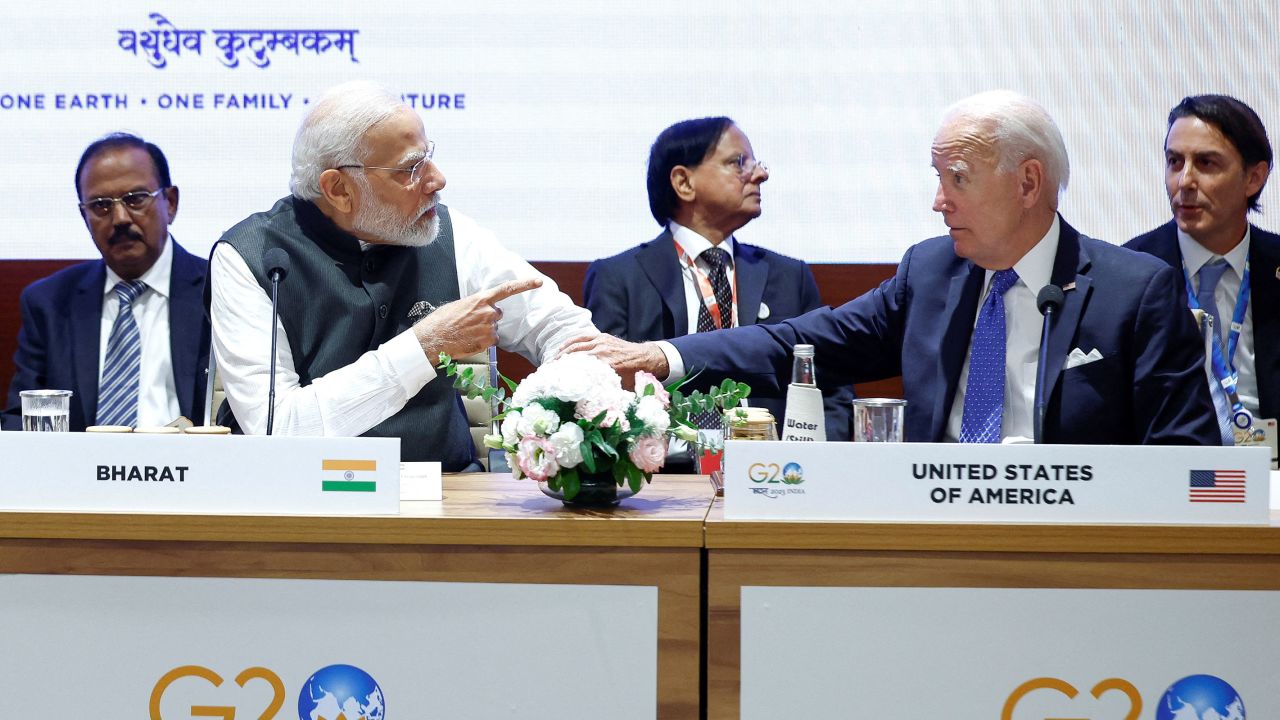President Joe Biden, on a mission to confront the global ascendancy of China, is actively engaging with nations around the world to bolster democratic values and build strategic alliances. Framing his presidency as a struggle between democracy and autocracy, Biden has positioned the United States in opposition to both Russia and China. In a significant diplomatic move, he seized the opportunity presented by the absence of Russian President Vladimir Putin and Chinese President Xi Jinping at the G20 meeting in New Delhi over the weekend. This report delves into Biden’s recent diplomatic endeavors and the broader implications for global geopolitics.
Building Unconventional Alliances
At the G20 meeting in New Delhi, President Biden leveraged the absence of Putin and Xi, making appearances alongside leaders from India and Saudi Arabia. These two countries, despite facing criticism for their human rights records, offer vital economic support that the United States requires. In an era defined by shifting alliances and strategic interests, Biden’s willingness to engage with nations previously at odds with American values signals a departure from conventional diplomacy.
“Friend-Shoring” Strategy Takes Center Stage
During his visit to Vietnam, President Biden forged deeper ties with the communist nation, emphasizing the importance of investment in friendly countries through a strategy known as “friend-shoring.” Deals, such as the one between Vietnam Airlines and the US company Boeing, were announced to strengthen America’s presence in emerging markets. Furthermore, Biden, Indian Prime Minister Narendra Modi, and Saudi Crown Prince Mohammed bin Salman jointly announced their participation in the new India-Middle East-Europe Economic Corridor, a move seen as a direct challenge to China’s One Belt, One Road initiative.
A Multilateral Effort to Contain China’s Rise
President Biden’s proactive approach is indicative of a world order that is no longer unipolar. The newly proposed India-Middle East-Europe Economic Corridor demonstrates not only the United States’ reliance on Middle East allies but also the Gulf states’ attempt to strike a balance between traditional alliances and emerging partnerships, notably China. Nadeen Ebrahim, writing for CNN, observes that this ambitious plan underscores the US’s efforts to contain China’s ascent and reflects the evolving dynamics of global governance.
Xi Jinping’s Absence and China’s Global Vision
While Biden actively engages with world leaders, Chinese President Xi Jinping’s absence from the G20 meeting raises questions about China’s global strategy. According to CNN’s Nectar Gan, Xi’s no-show may indicate disillusionment with the existing global governance system, which he perceives as heavily influenced by the United States. China may be prioritizing multilateral forums that align with its vision for global governance, such as the BRICS summit and the upcoming Belt and Road Forum, as it seeks to reshape the global order.
Biden’s Diplomatic Outreach: Challenges and Perceptions
Amidst these diplomatic maneuvers, President Biden’s extensive international travels have raised questions among Americans. While he thrives on meeting with world leaders to advance US interests, concerns about his age and his physical and mental competence persist among many US voters. CNN’s Kevin Liptak and Jeremy Diamond note the challenge faced by Biden’s advisers in conveying the importance of these diplomatic endeavors to the American public.
In conclusion, President Joe Biden’s pursuit of a diplomatic strategy to counter China’s influence is reshaping the global geopolitical landscape. From forging unconventional alliances to promoting “friend-shoring” and navigating complex international relations, his presidency is defined by a dynamic approach to global affairs. As the world transitions towards a multipolar order, Biden’s efforts underscore the importance of strategic diplomacy in a rapidly evolving global landscape.















